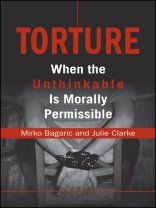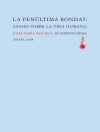Argues that there are moral grounds to use torture where the lives of the innocent are at stake.
The 'war on terror’ has brought the subject of torture to the forefront of public attention. In contrast to other discussions that focus narrowly on the practice of torture, and condemn it under any and all circumstances, Mirko Bagaric and Julie Clarke argue that to take this position is to live in a moral vacuum. The subject of torture causes our emotions to conflict with our reason. When we have a choice between saving the life of an innocent person, and not harming a terrorist or other wrongdoer, it is indecent to absolutely prefer the interests of the wrongdoer. In contrast, they propose a moral standard where each individual’s interest counts equally. Within this standard, the ostensibly brutal act of torture may be permissible if it has the potential to achieve compassionate outcomes in the form of saving innocent lives.
Spis treści
Preface
Acknowledgments
1. Introduction: Overview of the Torture Debate
2. Torture: Reality and Legal Position
3. The Moral Status of Torture
4. The Slippery Slope Illusion
5. Life-saving Torture Is a Humane Practice
6.Torture Is Effective
7. Torture Is not Antidemocratic
8. The Real Divide: Where Responsibility Starts and Ends
9. Why the Torture Debate Really Matters (And Why a 'Meta-analysis’ of the Torture Debate Supports Our Argument)
10. Conclusion: The End Justifies the Means
Notes
Index
O autorze
At Deakin University in Australia, Mirko Bagaric is Professor of Law and Julie Clarke is Lecturer in Law. Bagaric’s books include How to Live: Being Happy and Dealing with Moral Dilemmas and Clarke’s include (with P. Clarke and N. Courmadias) Butterworths Casebook Companions-Contract Law.












